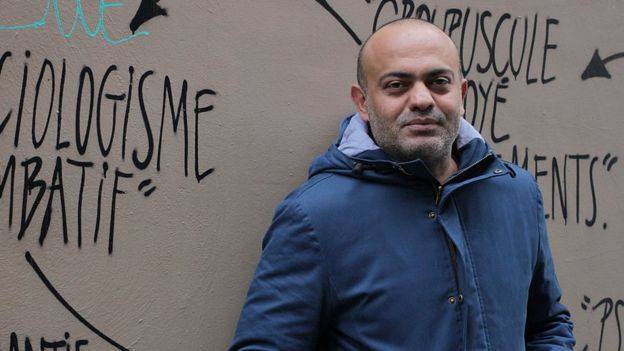
Iraq is just one of the many countries around the world whose sci-fi literature is rarely translated into English, giving the false impression that science fiction is a mainly Anglophone or Western tradition. A new anthology, Iraq + 100, edited by writer and Iraqi expatriate Hassan Blasim, aims to correct this view. In the book, a number of distinguished Iraqi sci-fi authors write stories that try to answer the question, “What might Iraq look like a century from now?” In The Atlantic, Jason Heller has a review the book, which you can read in partial below.
Accordingly, the stories in Iraq + 100 ripple with speculative energy. Written by authors who range in age and style, the tales take place in the cities of Baghdad, Basra, Mosul, Najaf, Ramadi, and Sulaymaniyah—all are set in the year 2103, a century after the U.S. invasion. In “The Worker” by Diaa Jubaili (translated by Andrew Leber), Basra has continued to be ruled by a succession of tyrannical theocrats, the latest of whom has overseen a wave of famine, human trafficking, and even cannibalism. Using history to twist the present, the dictator spouts a perverse moral relativism—all while his citizenry scratches for survival amid the ruins of lost technology.
Graphic and grisly, “The Worker” shares a setting with “The Day by Day Mosque” by Mortada Gzar (translated by Katharine Halls). In Gzar’s dreamlike, visceral story, the mining of a most unsavory substance—snot—becomes symbolic of resource exploitation and social engineering on an insidious scale.
The author Zhraa Alhaboby and her translator Emre Bennett give urban life a less horrific, if no less thought-provoking, depiction in “Baghdad Syndrome.” An architect living in downtown Baghdad is the unreliable narrator of the story, which revolves around a reality-warping genetic mutation that has begun afflicting Iraq as the result of chemical warfare a century earlier. A different kind of epidemic is presented in “The Here and Now Prison” by Jalal Hasan (translated by Max Weiss), in which teenagers dodge oppression in an eerie future Najaf where memories are available in pill form and the surveillance state has gone biomechanical. Blasim himself contributes a story to Iraq + 100. Titled “The Gardens of Babylon” (translated by Jonathan Wright), it involves virtual reality, game design, and corporate politics in a technologically advanced Iraq—renamed Federal Mesopotamia—whose wonders are built on shaky ground. Dazzling and disorienting, these stories are not just reflections of turmoil, but also yearnings for peace and a connection with Iraq’s past grandeur.
Image of Hassan Blasim via BBC.